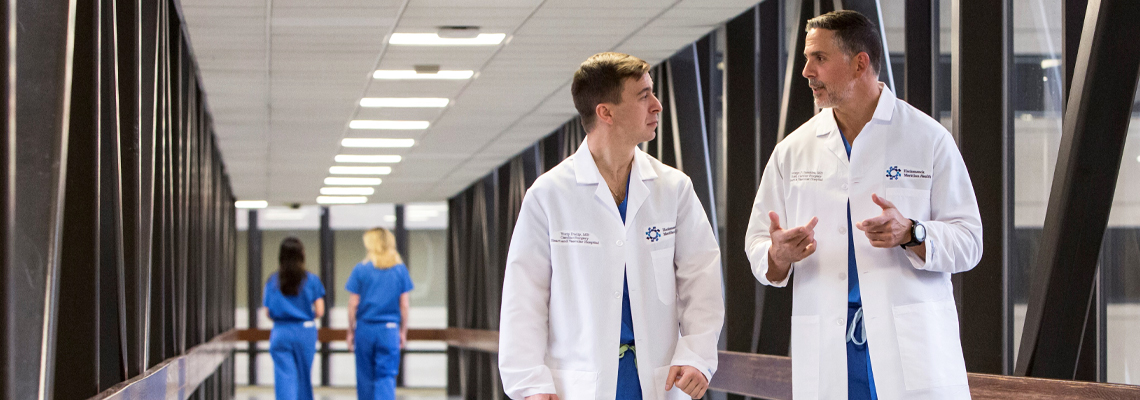

You guessed it - men are more likely than women to skip checkups and delay medical care.
Do you feel healthy now? That’s great! But that doesn’t give you a free pass from visiting your health care provider for preventive screenings. Preventive health care is pretty self-explanatory — it helps prevent diseases. It can also find problems early, when they’re most treatable. Here are some important tests to discuss with your doctor:
Blood pressure screening. Men ages 40 and older should get their blood pressure checked every year. High blood pressure doesn’t usually have signs or symptoms, but it can be dangerous and life-threatening, leading to heart disease, stroke and kidney disease. “To get your high blood pressure under control, or to minimize your risk of developing it, eat a high-fiber, low-fat diet, exercise at least 30 minutes five or more days a week, manage stress and avoid smoking,” says William Salerno, M.D., director of the Advanced Cardiovascular Assessment Program at Hackensack University Medical Center.
Cholesterol test. Beginning at age 35, men should get their cholesterol checked regularly — at least every five years. Men younger than age 35 could benefit from cholesterol testing if they smoke, have high blood pressure or diabetes, or have a family history of heart disease. If your cholesterol is high, you may need to check it more frequently. A healthy total cholesterol level is lower than 200 mg/dl.
Blood glucose test. This simple blood test can help detect type 2 diabetes and prediabetes, which can increase the risk for heart disease. “Men should schedule a blood glucose test for diabetes if they have elevated cholesterol or high blood pressure. They should also have this test if they notice signs of diabetes, such as frequent thirst and urination, extreme tiredness and blurred vision,” says Madhu Goyal, M.D., of JFK University Medical Center. Healthy men should get screened every three years starting at age 45.
Colorectal cancer screening. If you’re age 50 to 75 and have an average risk of developing colon cancer, get screened regularly, the USPSTF advises. However, the American Cancer Society recommends getting your first colonoscopy at age 45. Talk with your doctor to determine the screening schedule that’s right for you. If you’re younger than age 50 and are at increased risk for colon cancer, ask your doctor when to begin screenings. Risk factors include having a personal or family history of colon cancer or polyps [abnormal growths that might turn into cancer later] or inflammatory bowel disease. If you’re older than age 75, ask your doctor whether to continue screenings.
Weight and height check. Body mass index (BMI) estimates how much body fat you have based on your height and weight. The higher your BMI, the greater your risk of developing certain diseases, such as high blood pressure, heart disease, type 2 diabetes and some kinds of cancer. A healthy BMI is between 18.5 and 24.9. If your BMI is in the overweight or obese range, your doctor may recommend you lose weight. “Losing just 5 percent to 10 percent of your weight — that’s 10 to 20 pounds if you weigh 200 pounds — can improve your health,” says Richard Greco, D.O., from the Center for Bariatric Surgery at Raritan Bay Medical Center.
Prostate cancer screening. Beginning at age 50 or 55, men should discuss the advantages and limitations of prostate cancer screening with their doctors.
When was your last doctor visit? Regular checkups help ensure you stay healthy. Talk with your doctor about a schedule that is best for you, given your medical history and health.
Next Steps & Resources:
- Call 800-822-8905 or schedule an online appointment with a primary care physician.